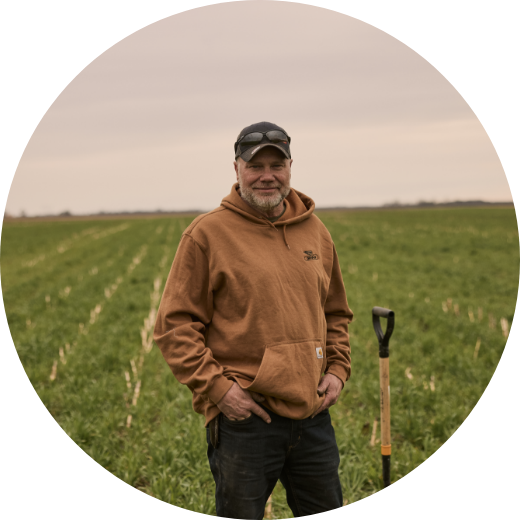

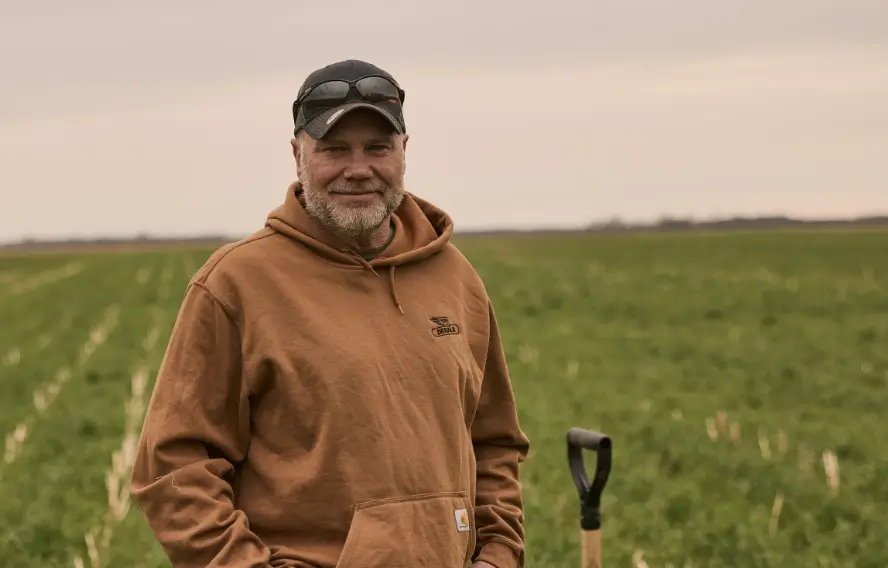
Bryan Severs
is Loyal to the Soil
Potomac, IL
We recently had the opportunity to speak with several Illinois farmers who’ve been proactively adopting conservation practices. This insightful Q&A features highlights from our conversation with Vermillion County farmer Bryan Severs.
“I’m saving it all for my kids. Because the thing about dirt is, they just don’t make it anymore, you know? It’s a finite resource. And there’s actually less and less of it every day. So conservation…conservation is everything. Conservation is what saves the world. Less working of the soil and more letting Mother Nature do her thing.”
“Let me put it to you this way. We farm around 5,000 acres; if I can no longer use pesticides I’ll have to go back to working and ploughing the ground. And then I’ll be down to around 500 acres because of all the additional work. And I’d have to abandon the cover crops. A lower yield would mean I’d lose a lot of money, and there’d be even less supply for people to buy, driving prices higher.”
“To promote more conservation, I personally think the farming community would benefit from some more government incentives, even if the legislators say they don’t know where they’re going to get the money. To get more adoption, there simply needs to be more incentive. Because a lot of people genuinely want to do the right thing, but we also need help doing it.”
“What we really need is to figure out how to connect the landowners with this conservation thing, so they become more conscious about it. Seems they just care about when that next check is coming in, but because they own the actual land, they have more of a long-term stake in conserving the quality of it. How do we get them incentivized to play a bigger role?”
Q: How long have you been farming?
Our farm here is called Severs Farms, and I’ve been farming on it since I came home from college back in 1988. My dad wasn’t quite ready to retire when I first graduated, so I became manager of a fertilizer plant, which gave me some good perspective on how other people do things.
But I’ve been on-and-off farming here since 1988. The farm is multigenerational – I’m generation number three, my kids are generation four, and generation five just recently arrived.
Q: What does conservation mean to you?
When you talk about conservation, I think about trying to keep the soil good for the next generation…and the generation after that. So, to me, it means not abusing it. Conservation is what saves the world. Less working of the soil and more letting Mother Nature do her thing.
Another way I like to think about it is, I’m saving it all for my kids. Because the thing about dirt is, they just don’t make it anymore, you know? It’s a finite resource. And there’s actually less and less of it every day. So conservation…conservation is everything.
Q: What are some conservation efforts you’ve been undertaking?
In the fall we like to strip till. Before the corn, we’ll put the fertilizer in the ground and make a strip 10” wide and it gets the dirt black…basically gives me something to plant.
A lot of people will chisel instead, working the ground, turning it up, making it black that way. But then you have to work it twice as much to get it all level…and we’re not doing that.
When we get done combining, we do soybeans and we no-till with those. We also raise non-GMO soybeans, which consumers like.
In the fall, we’re also applying cover crops, like rye in front of beans or barley in front of corn. I’m still experimenting with it…we’re not at 100% yet. They say it can take five years before you’re back to yielding the same amount. And that’s a big concern. Especially when you cash rent the land like we do. Makes it harder to use cover crops because you don’t know if you’re going to be on that same field next year…and the whole point to cover crops is improving the land for future seasons. So it’s definitely an investment, and a lot of farmers won’t want to make that investment…especially on land that’s not theirs, and when they know the investment is going to reduce their yield in the short-term.
Something else we do is use a company called Precision Conservation Management to help us evaluate our farm to make it better. They analyze our activities over the course of the year and then evaluate our yield. It’s been worthwhile, I think, because it gives us a good idea of how things are going. Technology is becoming more helpful that way.
Q: What’s been your biggest challenge so far would you say?
The hardest thing when it comes to cover crops, in particular, is the 5-year lag. We’re doing a 5-year program now and they say it can take that long to get your yields back. Last year was the first year we did it and there was a significant difference. This year we’ve got rye out there to plant beans into. The cover crops did help with some things, but it’s hard to take a yield dip like that. If we had some kind of assistance for these four years while the yields are down, it would make a big difference.
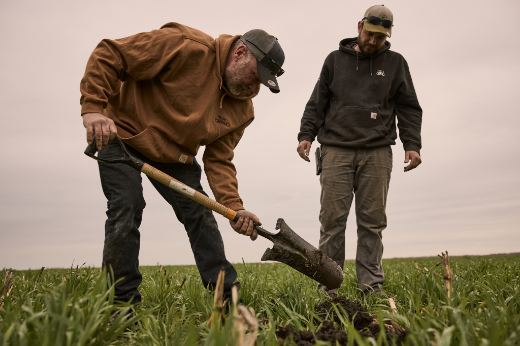
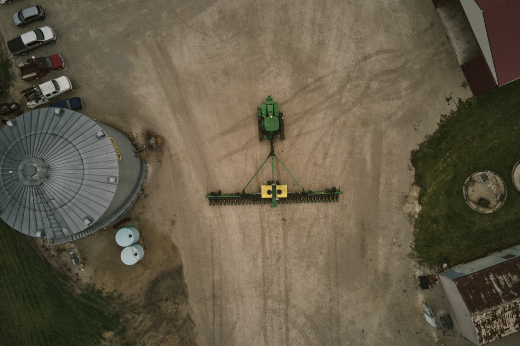
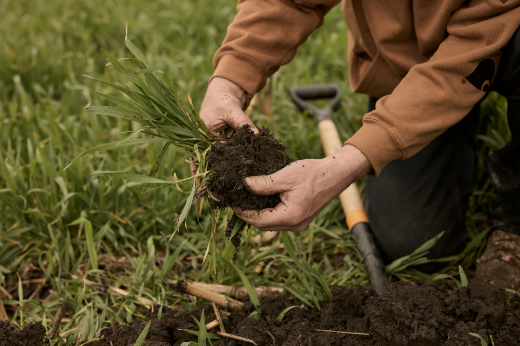
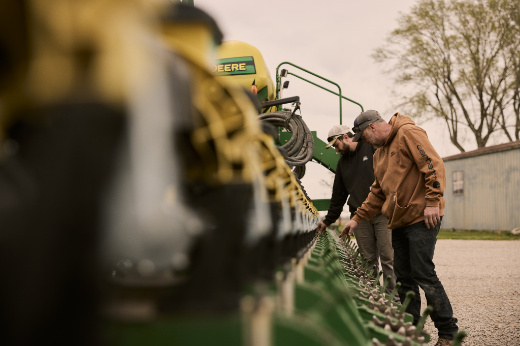
Q: How have government programs helped you with your conservation efforts?
I actually get $0 dollars right now from the state government for my conservation efforts. I implemented my practices before it was considered “the right thing to do,” and so the state won’t incentivize or reward me for those activities. That’s how it works, I guess. They only reward and incentivize new activities, so if you were already doing these things at the time the rewards were introduced, you’re not eligible. It’s unfortunate that doing things the right way the first time makes you ineligible. If they’re willing to incentivize for these kinds of activities now, I don’t know…maybe they should also reward some of us who’ve already been doing them.
Q: What are some common misconceptions about the work you’re doing?
Pest control, for one. In fact, some of the pesticide bills that legislators are considering these days would be disastrous. And not just for farmers. The cost of groceries would skyrocket.
Let me put it to you this way. We farm around 5,000 acres; if I can no longer use pesticides, I’ll have to go back to working and ploughing the ground. And then I’ll be down to around 500 acres because of all the additional work. And I’d have to abandon the cover crops. A lower yield would mean I’d lose a lot of money, and there’d be even less supply for people to buy, driving prices higher.
Q: What does the adoption of conservation practices look like in your area?
Not everyone in my area is doing all the things we do – the strip-till, the no till, the cover crops.
Unfortunately, when you’re renting the land, just showing people that you’re responsible working the ground doesn’t mean you get to keep it when you’re done. The landowners often don’t care if you’re practicing conservation. Many of them are focused only on the dollars and when that next check is coming.
To promote more conservation, I personally think the farming community would benefit from some more government incentives, even if the legislators say they don’t know where they’re going to get the money. To get more adoption, there simply needs to be more incentive. Because a lot of people genuinely want to do the right thing, but we also need help doing it.
Q: What are some of the hang-ups that the farmers around you may have about adopting the processes you already have?
There are definitely some barriers to adopting these kinds of practices. There’s the equipment for one. Like, to strip till you’d have to buy a strip till bar. And then the attachments for the strip tilling and no-tilling.
But there’s also just routine. “That’s not the way my dad did it,” is something you hear a lot. Farmers are a stubborn stock. They don’t like to change the way they do things because if something’s working for them, then why change? They’re just reluctant to change. They get comfortable working the ground three times. Doing what they’ve always done. It’s not easy trying something new.
It’s easy to get hung up in our habits and lose sight of the bigger picture. And the bigger picture for me is my two boys…knowing that I’m leaving them something. I’ve been told by people that I’m the luckiest guy in the world because I get to work every day with my two boys, and I totally agree with them on that.
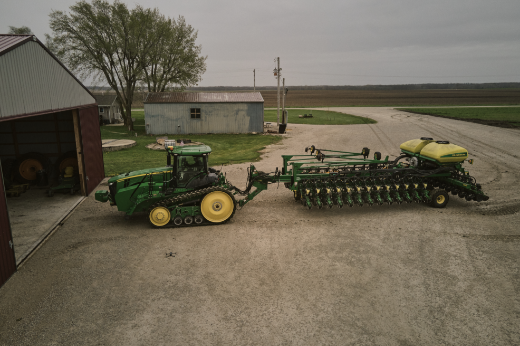
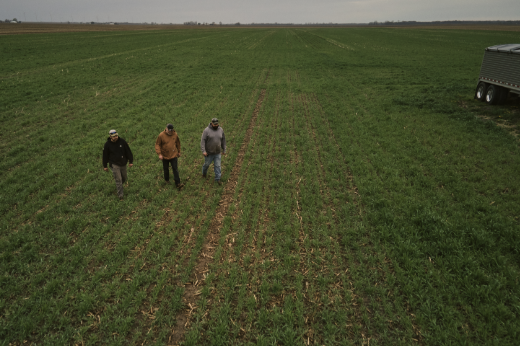
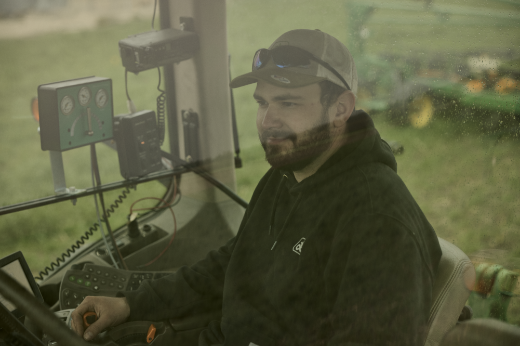
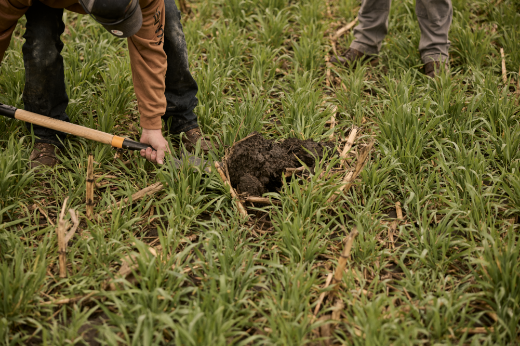
Q: Are there things you worry about for your next generation?
Ownership of farmland is something else I worry about. The turnover of the ground is all going to the big guys and the investors, making it harder for people like us to keep the ground we have with our landlords.
Rising costs are another problem…everything is so expensive now. A new combine can be a million dollars, but then you’re making $50 an acre, so think about that. Everything costs so much.
I’m also concerned about what’s going to happen to the ground. When it rains like it is today, there’s all this runoff. That dirt runs off. And, like I say, they’re not making more of it. That’s where the cover crops and the no-till helps…it helps to keep the soil in place.
Q: Are there any misconceptions that you once had that you’ve since gotten over?
I used to think that no-till made the ground as hard as my desk. I just assumed that you needed to work the ground. But I’ve proven to myself over the years that it’s just not the case. And that’s what I’m doing now with cover crops…now in the second year of the trial. I need to prove it to myself. I don’t think I can do it on all 5,000 acres…and get it done with everything else we do. And we’re also going to do it on the ground we OWN, not on the ground we rent…because that would just benefit the next guy to come in and outbid me.
What we really need is to figure out how to connect the landowners with this conservation thing so they become more conscious about it. Seems they just care about when that next check is coming in, but because they own the actual land, they have more of a long-term stake in conserving the quality of it. How do we get them incentivized to play a bigger role?
Q: Any parting thoughts or words of wisdom?
Farmers want to do the right thing, but we just need a little help to make it work. Like everybody else, we’re all about earning a living. If we don’t make money, we’re not going to make it to the next year. So that’s always going to be our priority. After that, make it easier for us to do the right thing and we will.
And Mother Nature, don’t forget, is the real kicker in ALL of this stuff. If it doesn’t rain, it doesn’t matter how much you do…or how much money you spend…you’re not going to make it. Mother Nature ultimately controls everything. We need to do right by her to the degree that we can.
Bryan Severs is Treasurer of the Illinois Soybean Association (ISA), represents District 7, and is a member of the Soybean Production, Personnel and Finance Committees. He is also a representative for the Council for Best Management Practices (CBMP) and sits on the Precision Conservation Management (PCM) Steering Committee. He lives with his wife and two sons in Vermillion County, where they raise corn, soybeans, and cattle. A third-generation farmer, Severs graduated from Western Illinois University with a degree in animal science, and has previously served as president of the local school board.
